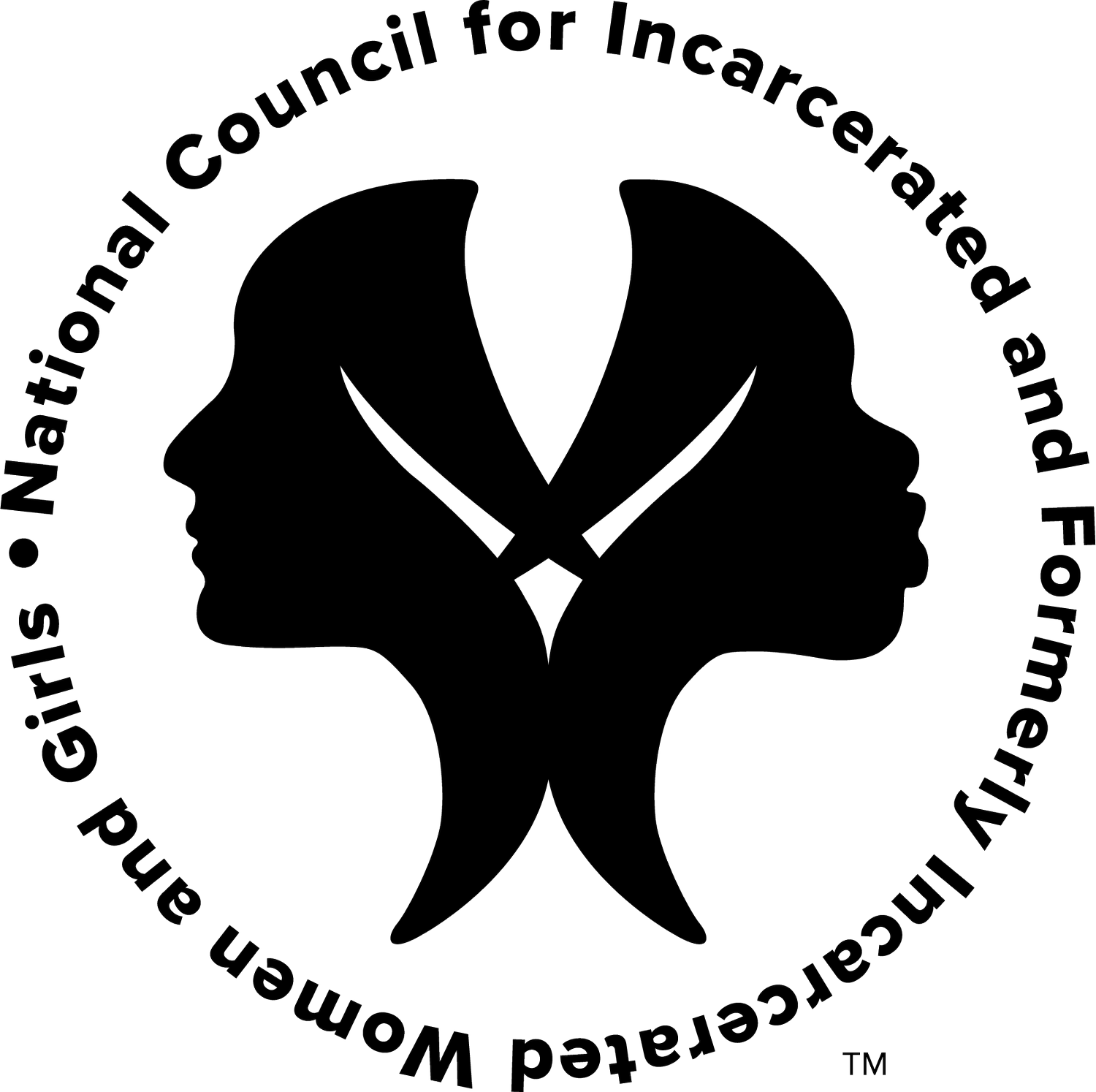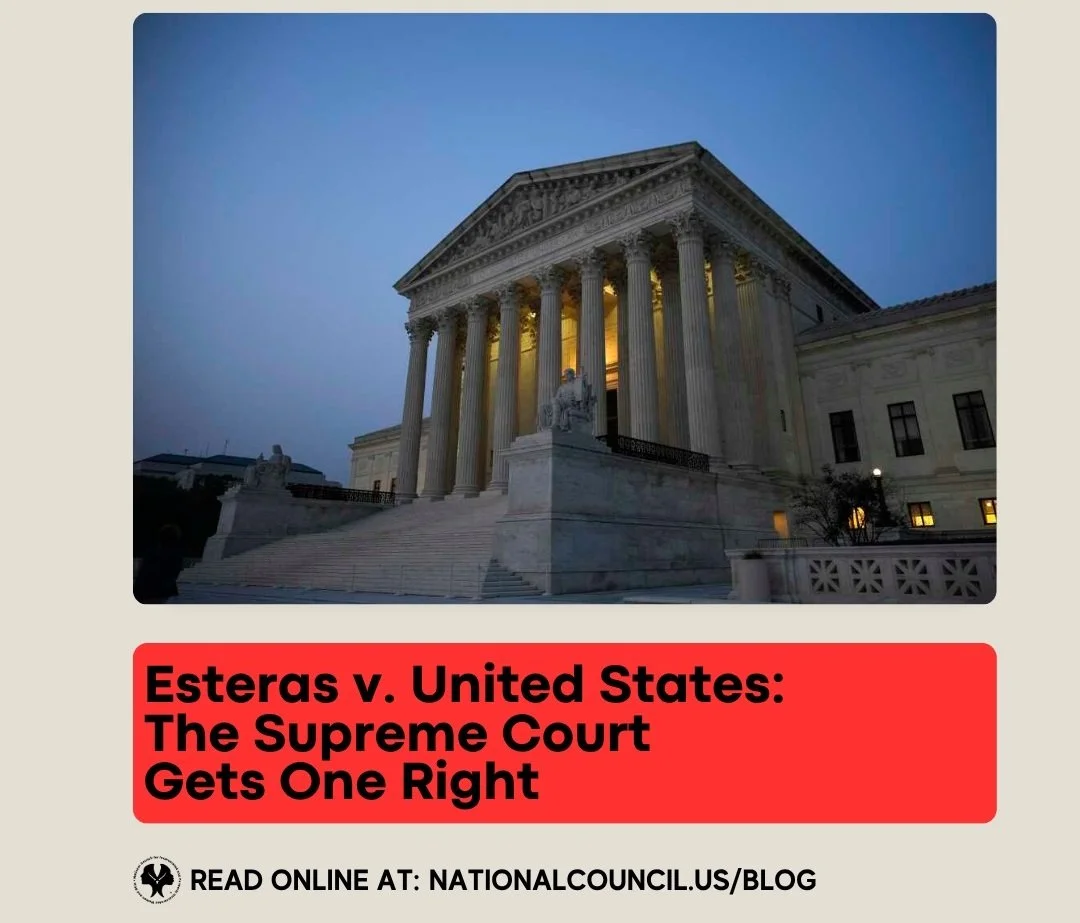Esteras v. United States: The Supreme Court Gets One Right
On a day when the Supreme Court is issuing so many decisions that feel harmful and deeply misguided, an incarcerated member of The National Council (who has requested to remain anonymous) reflects on a June ruling in a new blog post to close out the month.
Americans Love Punishment “Don’t do the time if you can’t do the crime.” Retribution is the default mindset—and it’s written into federal sentencing law. Judges are required to impose “just punishment,” with no mention of mercy, context, or root causes.
But things shift once someone completes their sentence and begins supervised release. In theory, punishment is over. The person is supposed to be reentering society, under the guidance—not control—of a probation officer.
In reality, many people violate the terms of their release. When that happens, a judge must decide whether to send them back to prison. Congress laid out the framework for that decision: go back to the purposes of sentencing—but this time without considering punishment. The goal is forward-looking: What will protect the public and support successful reintegration? Should the person go back to prison? Get new conditions? Or simply be told: don’t do it again?
Importantly, the law outlines six factors a judge must consider—and retribution is not one of them.
Normally, if something’s not on the list, it’s off the table. If your name isn’t on the invite, you’re not going to the party.
But apparently not if you're the Department of Justice or the Sixth Circuit Court of Appeals. According to them, exclusion doesn’t mean prohibition—it just means you can consider it if you feel like it. Not invited to the party? Well, maybe we’ll let you in anyway.
On June 20, the Supreme Court restored common sense. In Esteras v. United States, Justice Barrett wrote for the majority: because Congress explicitly excluded retribution from the list, judges can’t use revocation of supervised release as a way to tack on more punishment.
“Text, structure, and precedent all point in the same direction: Congress’s decision to exclude §3553(a)(2)(A) from §3583(e)’s list of sentencing factors means that district courts cannot consider §3553(a)(2)(A) when deciding whether to revoke supervised release.” — Slip Op, p. 10
So if someone was sentenced to five years for selling drugs, then used drugs while on supervised release, a judge could respond by protecting the public or addressing addiction. But they couldn’t send that person back to prison just to “teach them a lesson.”
There’s plenty of legal nuance, and SCOTUSblog is the place to dig deeper. But the takeaway is simple: retribution is supposed to be proportional and finite. It’s not a blank check. This ruling reins in the state’s impulse to punish indefinitely.
And yet, the case also reveals the system’s core flaw: it values pain over accountability. This decision is a win—within a broken framework. At the end of the legal process, both the person who caused harm and the person harmed often walk away worse off.
Justice shouldn’t begin with punishment. It should begin with accountability. True justice asks what must be done to make things right—not what can be done to grind people down. It’s time the law reflected that.
Disclaimer
This blog serves as a platform for members of The National Council for Incarcerated and Formerly Incarcerated Women and Girls (TNC) to share their thoughts, ideas, experiences, and creative expression. The views and opinions expressed in individual submissions are those of the contributing authors and do not necessarily reflect the official opinions, policies, positions, or perspectives of The National Council, its leadership, members, or partners.
We believe that every voice deserves to be heard. This space uplifts the diverse lived experiences of our community and honors the right of each person to speak their truth. While contributions may vary in perspective, together they reflect the power of collective storytelling and the urgent need for change.



